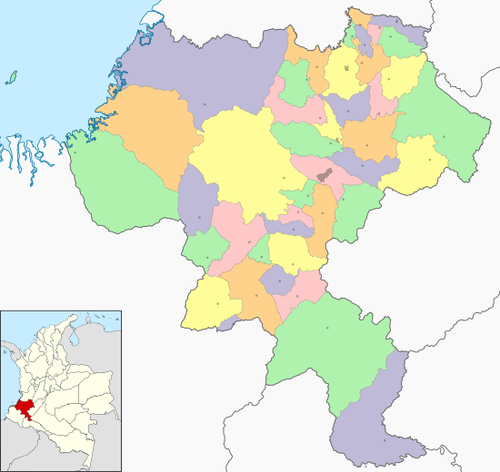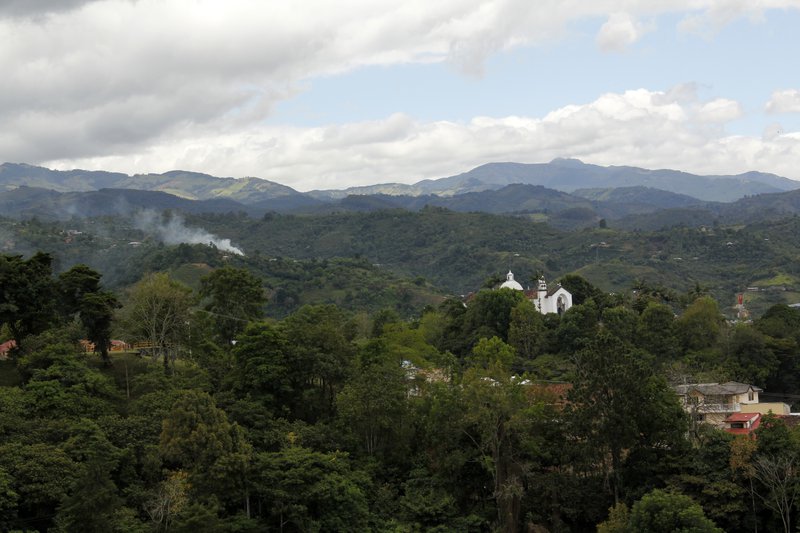"They are going to kill me, and I don't want to get killed": social leader of the Colombian Cauca region
This testimony is the first of a series on social leaders in Colombia, which seeks to give them back their voices, tell their life stories, what they do and how they survive in their territories.

Cauca, located in southwestern Colombia, is the department with the most murders of social leaders in Colombia. As of June 15, 2020, and according to Somos Defensores, 63 leaders have been assassinated.
Patía, part of Cauca, a valley that had been submerged under the sea for more than 3,500 million years, was first hit by the FARC guerilla and then by the paramilitaries, is the home of Mosquera. This is her testimony:
I was born on the El Juncal. I grew up there and had my first encounter with violence: at 14 and 15 years old I had my two oldest daughters. Both are the product of sexual abuse perpetrated by those I knew as "chusmeros" and who were none other than guerrillas members of one or another illegal armed force that controlled the territory and who arrived, found me and did whatever they wanted.
Later I had my third child. He was an attempt to live love, but I didn't have the chance or the stamina. I come from a very poor family and out of ignorance they never taught us how mental health can affect a human being. I felt fear and was not able to live with the father of my son, as soon as I had him I ran away, we lived in Yumbo and I ran away ,and to this day I live alone.
Today, I am 50 years old and my daughters are already married. I have two grandchildren: one is 7 and the other one and a half. My son is 23 years old and works in the Municipal Office of Popayán.
"Teachings are learnt with blood"
We were and are peasants. I am fortunate to have my mom and dad alive. He is 78 years old and she is 75. They separated 35 years ago, but we are there and we support each other. I have nine brothers, eight alive. The eldest was killed by the paras. I also have two stepbrothers from my dad's new life.
My family was one of the humblest on my village. I did not study because my father thought that daughters studied to give birth. So I was secretly going to school. Have you heard that saying that teaching are learnt with blood? It was like that for me. When my dad sent me to the store I would go to school, and then the lashing came.
Telling these stories saddens me, but they have made me better as a person,
Displaced and roofless
Growing up, the paras threatened the entire village and we had to leave. We arrived in Popayán in 99 and I, with my three children, faced what it means to arrive from the countryside to the city with no other knowledge than to harvest and live off the land.

My maternal grandmother said that in Popayán the one who has money eats and the one who doesn't starves, and it is true. When we arrived, we had no place to live, we slept on plastics and I was rummaging through my life. Hope came when, together with the thousands of other displaced people, we discovered the Pubus gorge in the Munich neighborhood of commune 7 in Popayán.
Pubus is a protection zone. It is a wetland, so the more than 1,000 families that settled there did so in the form of an invasion. Here is where my leadership was born. We started to debate with the police and the authorities until, after many clashes, we managed to reach an agreement to stay there.
Together with the other displaced families, we created the Corporación Destechados ProDesarrollo Comunitario that seeks better living conditions. I, in particular, focused all my efforts on leading environmental and community development projects for more than 1,500 families. This is why I was awarded the Woman Cafam award in 2007.
We the award only came a feeling of proudness, because the 16 million that the award gives, I gave to needy and elderly women from the creek, and the 2,500 subsidies that the then government on duty promised me, never came true.
After the award came threats
Mosquera not only led successful efforts to decontaminate the creek, but also created organic vegetable gardens from which they take cabbage, onion, beets and other products that every 45 days serve to barter with people from Popayán who in return give them rice, soap and clothes.
Thanks to her efforts, she managed to acquire a lot in which 3,088 displaced families were relocated to and which today is called Ciudad Futuro Las Guacas.
After that, she traveled to the United States invited by Hillary Clinton during the Barack Obama government. She went to the White House and toured the country for six months, in which she studied an environmental technician course at the University of Miami.
After that interval, she returned to Colombia to continue working for her community, and she was welcomed with her first threats.
Reality check for social leaders in Colombia
When I came back from Miami, my oldest daughter was kidnapped and I rescued her. I continued working in Cauca, to support my community and in 2014, seven years after the award, I was chosen to be part of the national space for prior consultation as a representative of the Afro, Raizal and Palenque communities by the Ministry of the Interior.
Since then, I have been putting up the fight for the rights of black communities, which is the community that more human lives has lost during the conflict, did you know that? It is that silence and oblivion that have allowed us to be killed for years. And they continue to see us as poor.
In 2019 I had a big scare. Here in Cauca they want to build the Santander de Qulichao-Popayán dual highway. I submitted a tutela to the National Government, which I won, to make a prior consultation because the road will displace many ancestral communities in that territory, it will contaminate water sources and, if they don't do something for those communities, they will end where the displaced black communities always end up here: on the side of the roads in invasion houses.
At that time, they declared me a military target and gave me 24 hours to leave the country or they would kill me. I did not leave, but I began to receive pamphlets telling me that I was going to die every other day.
tinyurlis.gdu.nuclck.ruulvis.netshrtco.de
